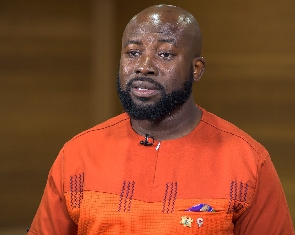Accra, March 5, GNA - Deputy Minister of Health, Mr Abraham Dwomoh Odoom, on Wednesday said collating a convincing data on mental health was a sure way of getting the needed attention.
"If we do not develop a solid data to convince us that our limited resources will best serve our common good through mental health rather than HIV/AIDS and malaria, then chances are that HIV/AIDS will get all the needed attention," he said.
Mr Dwomoh Odoom said this at a closing ceremony of a three-day workshop in Accra on the Use of the World Health Organisation Assessment Instrument for Mental Health (WHO-AIMS) in African countries. WHO-AIMS has been developed to assess key components of a mental health system and background in countries' policy and legislative framework, mental health services, human resources, monitoring and evaluation. The goal is to collect information to enable policy makers to develop information-based mental health plans with clear base-line information and targets.
Participants from Ghana, Senegal, Uganda, Ethiopia, Benin, Burundi, Cape Verde and Zimbabwe attended the workshop. The Deputy Minister told the meeting that Ghana had adopted a new paradigm shift, which laid emphasis on preventive, promotion and regenerative health to educate the public to live healthier lives. The shift, he said, if replicated in mental health, would campaign against unnecessary stress, drug abuse and other attitudes that led to mental illness.
Mr Odoom called on the participants to research more into preventable causes of mental illness and map out strategies to support the regenerative approach, as the Ministry expedites actions to ensure the passage of the Mental Bill.
He stated that policy makers in the health sector were looking forward to the dissemination of reports of the survey on the strengths and weakness of the instrument to find out how the ministry could further support the development of mental health in the country. Dr Shekhar Saxena, Co-ordinator, Department of Mental Health, WHO, said the proposed meeting was the follow-up to the work on WHO-AIMS done at the African Region during the last biennium.
He said, it was aimed at providing participating countries the opportunity to share information collected and to debate on the weaknesses and strengths related to methodology used. Based on the results, countries would identify steps regarding mental health systems priorities and discuss implications for decision making at country level.
A Report issued by participants indicated that the proportion of health budgetary allocation to mental health was less than two per cent of the total health budget in most countries.
The Report called for the promotion of mental health in citizens, restoration of wellness in those suffering from mental disorders and maintenance of restored mental health patients.
It said in spite of the slightly different levels of mental health development of participating countries, development of a mental health policy had not taken place in any of these countries. National health plans in participating countries had incorporated in them mental health but there were no schedules for detailed implementation steps as well an emergency preparedness plan for mental health. It said very little had been done to integrate mental health services with the primary health care system. 05 March 08
General News of Wednesday, 5 March 2008
Source: GNA












